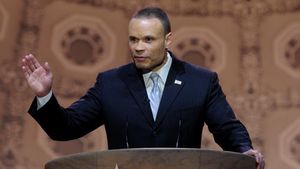Tomasz Stockinger, the celebrated Polish actor, recently marked his 70th birthday, reflecting on decades of artistic achievements and the sobering realities of retirement income for performers. Best known for his role as doctor Paweł Lubicz on the long-running series Klan, Stockinger has enjoyed nearly five decades of success on screen. Yet, like many of his fellow artists, he faces the harsh truth of inadequate pension benefits.
During an interview with Plejada, Stockinger candidly disclosed the specifics of his retirement pension. Having transitioned to retirement five years ago, coinciding with his 65th birthday, he now receives approximately 3,000 zł brutto each month—a sum he acknowledges is modest compared to the lifestyle many might expect from someone with his career longevity.
"I know there are smaller pensions," Stockinger stated, adding, "But if it has to be, I’ll find a way to make it work." Despite having had considerable success, the financial systems surrounding retirement for artists leave much to be desired. He expressed frustration at the lack of structural support for performers, particularly those whose earnings predominantly come from temporary contracts rather than steady, salaried positions.
"The problem is the absence of some systemic solutions. I’ve been primarily a film actor my whole life. I’ve acted in theater too, of course, but 90 percent of my earnings come from the screen," he explained. His choice of contracts throughout his career—primarily work-for-hire agreements—limits pension contributions, which he now finds insufficient to support standard living expenses.
Reflecting on his younger years, Stockinger admitted, "I didn’t think proactively about retirement, apart from saving what money I could. I was not insured like salaried employees, and the state should take responsibility for this since there are no full-time positions available on film sets." He reiterated the broader plight of actors who similarly struggle with the financial realities of retirement.
The conversation took on additional poignancy as Stockinger described the disconnect between public perception and the life of performing artists. Many believe these artists live materially well; the stark reality is often worse. “It’s not just about living normally on such low pensions, but even more so about living—how the public imagines it—at a star level," he lamented. He emphasizes the systematic disparities faced by his peers, who have expressed similar grievances.
Stockinger's demands mirror sentiments shared across the artistic community, illustrating significant concerns surrounding adequate compensation and pension provisions post-retirement. His reflections come as little surprise, considering the broader issues affecting many public figures who segue from active careers to retirement.
Despite the financial retrenchment, Stockinger remains active and involved in his profession. Evaluated as one of Poland's beloved actors, he continues to pursue roles, including his recent appearance as Laura's father in the film 365 Days. Such resilience signifies his love for acting, but the narrative surrounding retirement pensions urges broader reflection. Stockinger's case invites consideration of the necessity for reforms within the system, which governs artistic professions, to protect and provide for those who dedicate their lives to the arts.
"This is a matter affecting many people within the industry who have the right to feel aggrieved," he stated, asking not just for acknowledgement of the issue but for actionable solutions. His comments shine light on the overarching struggle faced by artists advocating for their place within the societal and financial structures they inhabit.
Overall, Stockinger's 70th birthday serves as more than just a celebration of his life and career; it becomes a call to action for systemic change. His story encapsulates the often-overlooked reality of retirement for artists and the urgent need for adjustments to the pension frameworks currently in place.



